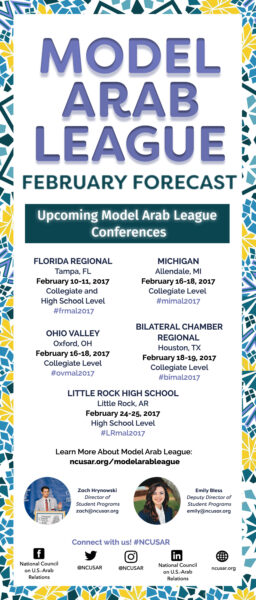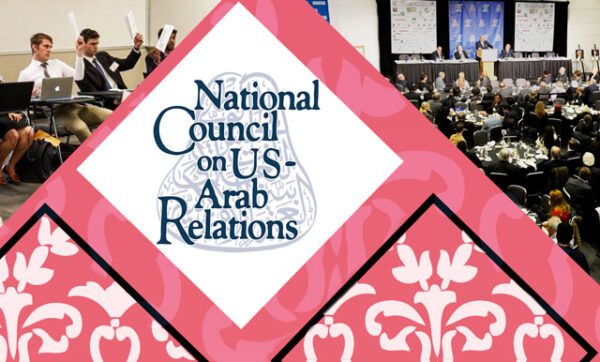Arabia, the Gulf, & the GCC Blog
The “Arabia, the Gulf, and the GCC” blog features insights and analysis from the National Council on U.S.-Arab Relations as well as information about the Council’s programs, projects, events, and activities. Founded in 1983, the National Council is a non-profit, non-governmental, educational organization dedicated to improving American awareness, knowledge, and understanding of the Arab region.
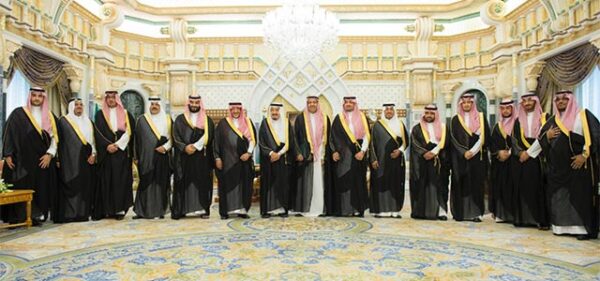
How the World Turns: Saudi Arabia in Transition
Download as PDF Following is important background information. It has to do with numerous high-profile administrative changes made

The Future of U.S.-GCC Trade and Investment
On March 29, 2017, the National Council on U.S.-Arab Relations, the Middle East Council of American Chambers of
Statements From Prince Mohammed bin Salman’s Meetings with President Trump & Secretary Mattis
March 14, 2017 – Statement from a senior adviser to Saudi Arabian Deputy Crown Prince Mohammed bin Salman
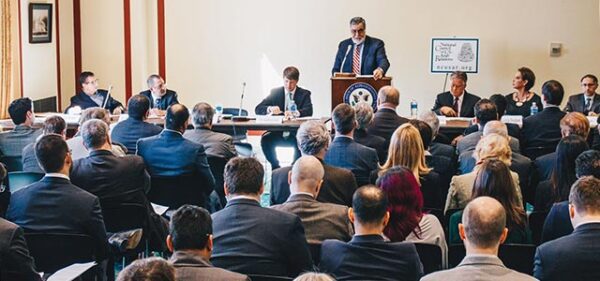
What Arab-U.S. Way Forward in Major Crisis Areas?
On February 16, 2017, the National Council on U.S.-Arab Relations and the U.S.-GCC Corporate Cooperation Committee hosted a

Upcoming Briefing on “What Arab-U.S. Way Forward in Major Crisis Areas?” – February 16, 2017
The National Council on U.S.-Arab Relations and the U.S.-GCC Corporate Cooperation Committee invite you to attend a public

Postponement Announcement: February 16 Conference on “U.S.-Libya Relations”
and EVENT POSTPONEMENT – “Libya-U.S. Relations 2017” Due to events and circumstances beyond the organizers’ and sponsors’ control,

“Libya-U.S. Relations 2017: New Vision, Hope, and Opportunities” **Conference Postponed**
and Invite you to attend a full-day conference: Libya-U.S. Relations 2017 New Vision, Hope, and Opportunities Date TBD*
Dr. John Duke Anthony on Inside Story (Al Jazeera English)
On December 21, 2016, Dr. John Duke Anthony, Founding President & CEO of the National Council on U.S.-Arab

Twenty-First Annual Oman Cultural Immersion Program — February 22 – March 8, 2017
Applications Now Being Accepted for the National Council on U.S.-Arab Relations’ Twenty-First Annual Oman Cultural Immersion Program February
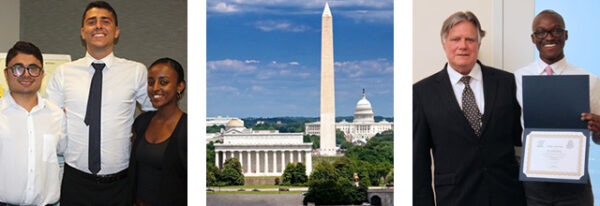
NCUSAR’s Summer 2017 Washington, DC Internship Program – Applications Due February 24
Washington, DC Summer Internship Program May 30 – August 4, 2017 [Download PDF Brochure] The National Council on

